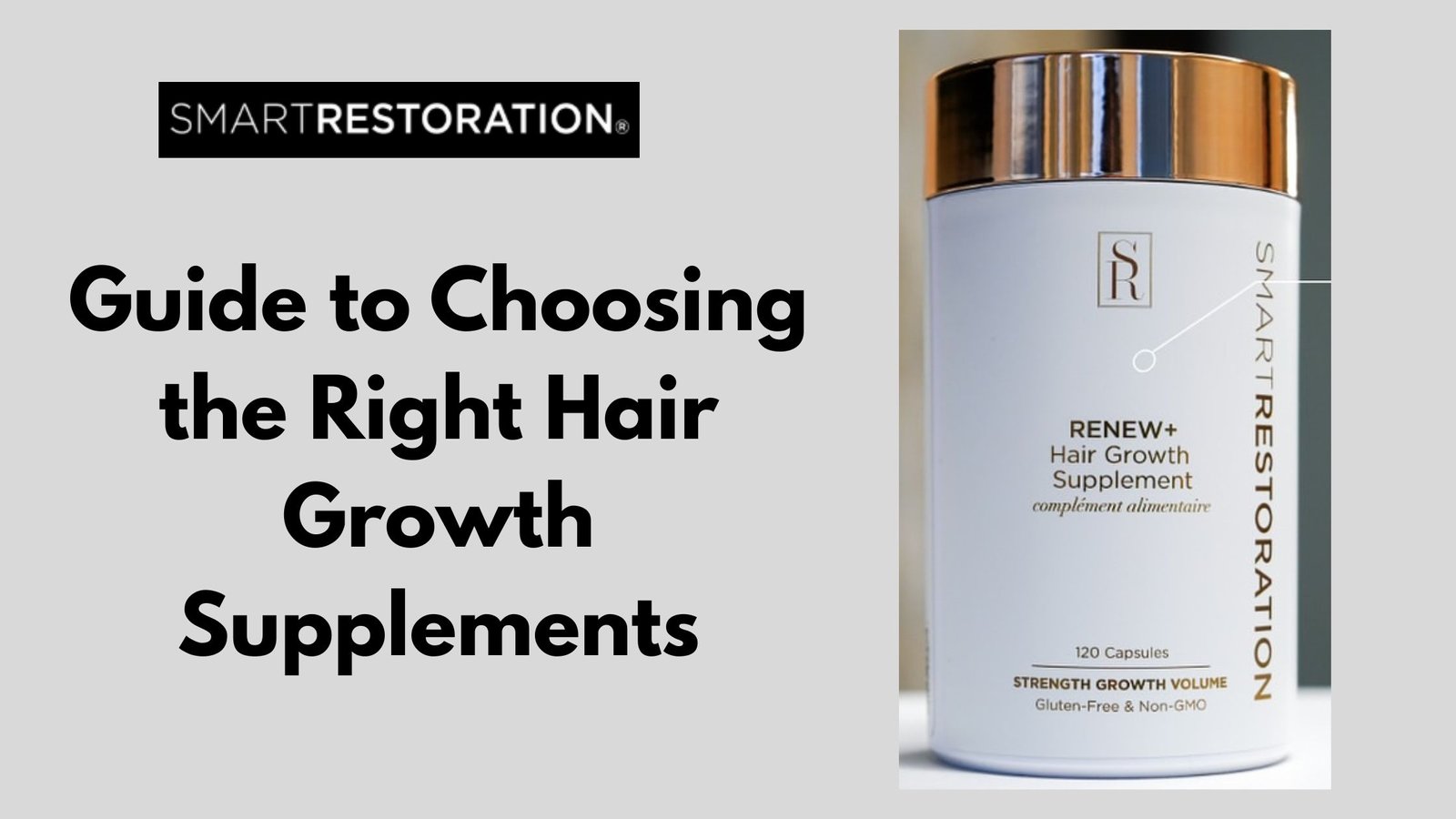Hair loss and thinning are increasingly common issues affecting both men and women. As awareness grows, so does the popularity of supplements for hair growth. With countless options flooding the market, selecting the right supplement can be overwhelming. Every product claims to work miracles, making it essential to understand what your hair truly needs. Choosing the right hair growth supplement involves more than just picking a popular brand—it’s about understanding your unique hair concerns and the ingredients that address them. This guide will walk you through the key factors to consider when choosing supplements for hair growth to ensure that your hair restoration journey is effective, safe, and tailored to your individual needs.
Understanding Hair Loss and Thinning
A variety of factors, including stress, hormonal imbalances, poor nutrition, ageing, and certain medical conditions, can trigger hair loss and thinning. Often, the first signs include excessive shedding, a receding hairline, or increased scalp visibility. Identifying the root cause is crucial before choosing any supplement. For instance, stress-related hair loss may benefit from calming adaptogens, while hormonal causes may require ingredients that regulate DHT. Addressing symptoms alone won’t work long-term unless the underlying triggers are managed. Supplements for hair growth are most effective when they align with the biological reasons behind hair loss. Understanding this connection helps you choose the right formula and also sets realistic expectations regarding timelines and results.
Key Ingredients to Look for in Hair Growth Supplements
When choosing supplements for hair growth, knowing what ingredients to look for is crucial. Biotin (Vitamin B7) is one of the most important, as it supports keratin production, which strengthens hair structure. Collagen provides amino acids that help in rebuilding hair strands. Zinc is vital for preventing follicle regression and maintaining a healthy scalp. Vitamin D and B-complex vitamins play a role in stimulating hair follicles and ensuring a balanced growth cycle. Saw palmetto is particularly helpful for blocking DHT, a hormone that contributes to hair loss in both men and women. Opt for supplements that use high-quality, preferably natural ingredients over synthetic alternatives, as these are more bioavailable and generally better tolerated by the body.
How to Evaluate a Hair Supplement Brand?
Not all supplements for hair growth are created equal, making it important to evaluate brands thoroughly. Look for transparency in element sourcing and manufacturing processes. Reputable brands often conduct third-party testing and display certifications that prove product safety and efficacy. Customer reviews, especially those with before-and-after photos, can provide insight into real-world results. Also, check if the brand backs its claims with clinical trials or endorsements from dermatologists and trichologists. A clear return policy and responsive customer service are also signs of a trustworthy company. Taking time to research ensures you invest in a product that not only meets your needs but is also safe and scientifically backed.
Common Mistakes to Avoid
Many people dive into supplements for hair growth without adequate research, leading to common mistakes. One major error is expecting overnight results—hair growth is a slow process and typically requires consistent use for at least 3 to 6 months. Another mistake is ignoring the ingredient list; just because a product is popular doesn’t mean it contains the nutrients your hair needs. Overlooking underlying medical conditions like thyroid issues or anaemia can also hinder results. Mixing multiple supplements without professional guidance may cause nutrient overload or negative interactions. Avoiding these pitfalls is key to seeing real, sustainable results from your hair supplement routine.
Combining Supplements with a Healthy Hair Routine
Supplements work best when paired with a healthy lifestyle and proper hair care habits. A balanced diet rich in proteins, iron, omega-3s, and vitamins lays the foundation for strong, healthy hair. Staying hydrated and getting sufficient sleep support overall wellness and hair regeneration. Integrating supplements for hair growth into a holistic routine maximises their effectiveness. Remember, no supplement can replace healthy living; it should enhance an already well-rounded approach to hair care—consistency and a comprehensive routine yield the best results.
Conclusion
Choosing the right supplements for hair growth involves understanding your hair loss type, evaluating ingredient quality, and maintaining realistic expectations. Patience is key, as hair regrowth takes time and consistency. Always opt for trusted brands with transparent practices, and consider consulting a healthcare professional or dermatologist for personalised advice. Supplements should be part of a larger hair care regimen, not a standalone solution. By combining them with a healthy lifestyle and proper hair care, you’re more likely to see noticeable, long-term improvements. Make informed choices to ensure your journey to fuller, healthier hair is successful and sustainable.


